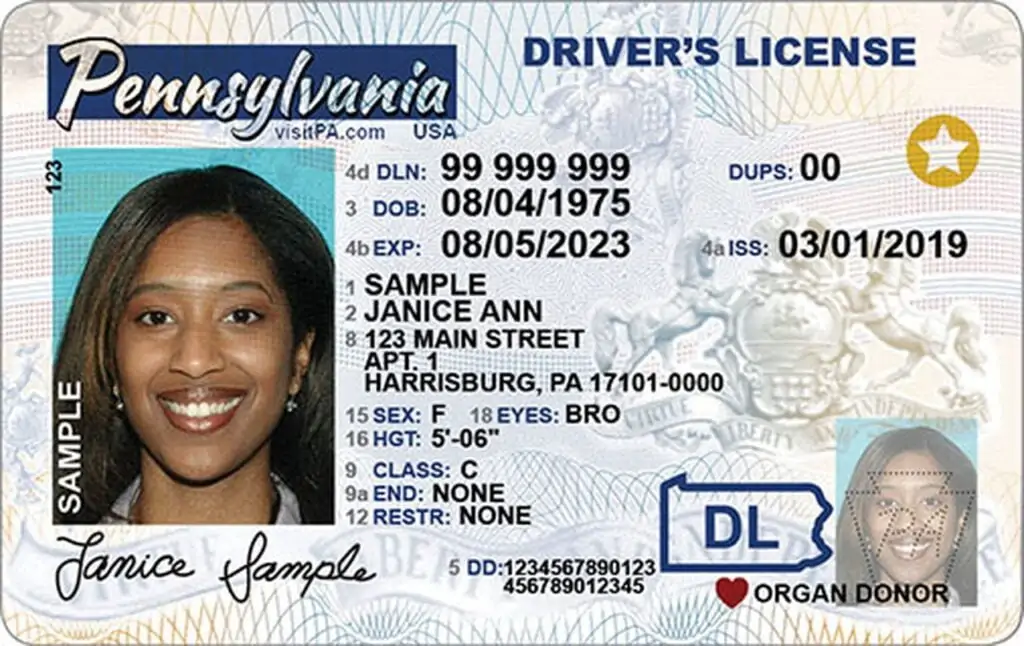Pennsylvania
ID Scanning Laws
Hotels in Pennsylvania are permitted to use ID scanners to verify the age and identity of their guests. This can be particularly useful in hotels that have bars or sell alcohol, as it provides a quick and efficient way to ensure that they are not inadvertently serving alcohol to minors.
- Verifying a customer’s age
- Establishing a customer’s identity
- Confirming a customer’s license status to operate a vehicle
- Disclosing such information to another business for (i) verifying a check payment, (ii) evaluating creditworthiness, (iii) detecting or reducing the risk of fraud, abuse, identity theft or other crimes, (iv) collection activities, or (v) confirming that a customer has met the motor vehicle financial responsibility requirements.
- Disclosing such information to (a) the department of transportation, (b) insurance licensees, (c) notaries, (d) financial institutions if permitted by federal law, or (e) law enforcement agencies.




Pennsylvania State Legislature
ID Scanning Resources
The Legal Framework
Pennsylvania ID Scanning Laws and Regulations
Pennsylvania’s ID Scanning Laws
In Pennsylvania, the use of ID scanners is governed by the Pennsylvania Statutes Title 47 P.S. Liquor § 4-495. This law provides guidelines on the acceptable uses of ID scanners and the types of identification that can be scanned. It also outlines the defenses available to licensees and their employees in the event that they inadvertently serve alcohol to a minor.
According to the law, a valid photo driver’s license or identification card issued by the Department of Transportation or by any other state, a Canadian driver’s license or other bona fide Canadian identification such as a Canadian-issued passport, a valid armed forces of the United States identification card, or a valid passport or a travel visa issued by the United States or a foreign country that contains the holder’s photograph are all acceptable forms of identification.
The law requires that such identification be presented by the holder upon request of any State Liquor Store or any licensee, or the servant, agent, or employee thereof, for the purpose of aiding such store, licensee, or the servant, agent, or employee to determine whether or not such person is twenty-one years of age and upwards, when such person desires alcoholic beverage at a State Liquor Store or licensed establishment.
ID Scanning in Hotels
In the context of hotels, this law has several implications. Firstly, it means that hotels in Pennsylvania are permitted to use ID scanners to verify the age and identity of their guests. This can be particularly useful in hotels that have bars or sell alcohol, as it provides a quick and efficient way to ensure that they are not inadvertently serving alcohol to minors.
However, the law also places certain restrictions on the use of ID scanners. For example, it prohibits the sale of wine at a point of sale where the customer scans the customer’s own purchases. This means that self-checkout systems that include alcohol sales are not permitted under Pennsylvania law.
The law also provides a defense for licensees and their employees in the event that they inadvertently serve alcohol to a minor. If the licensee or employee can establish that the minor was required to produce an acceptable form of identification, and that this identification was checked using an ID scanner, they may be exempt from penalties. This defense applies to all civil and criminal prosecutions.
Retention and Use of Information
One of the key aspects of Pennsylvania’s ID scanning laws pertains to the retention and use of information obtained from IDs. According to Pennsylvania Statutes Title 47 P.S. Liquor § 4-495, a retailer (including hotels) is allowed to retain and use information obtained from IDs only for the following purposes:
- Verifying a customer’s age
- Establishing a customer’s identity
- Confirming a customer’s license status to operate a vehicle
- Disclosing such information to another business for (i) verifying a check payment, (ii) evaluating creditworthiness, (iii) detecting or reducing the risk of fraud, abuse, identity theft or other crimes, (iv) collection activities, or (v) confirming that a customer has met the motor vehicle financial responsibility requirements.
- Disclosing such information to (a) the department of transportation, (b) insurance licensees, (c) notaries, (d) financial institutions if permitted by federal law, or (e) law enforcement agencies.
It’s important to note that the law prohibits the sale or dissemination of the information derived from a transaction scan to any third party, except to the board, the bureau, or other law enforcement official, for any purpose, including, but not limited to, any marketing, advertising, or promotional activities.
Please note that this information is intended to provide a general overview and does not constitute legal advice. Always consult with a legal professional for advice specific to your situation
Pennsylvania Anti-Trafficking Network
Our Fight Against Human Trafficking



Knowledge Base
Frequently Asked Questions
A valid photo driver’s license or identification card issued by the Department of Transportation or by any other state, a Canadian driver’s license or other bona fide Canadian identification such as a Canadian-issued passport, a valid armed forces of the United States identification card, or a valid passport or a travel visa issued by the United States or a foreign country that contains the holder’s photograph are all acceptable forms of identification.
Yes, hotels in Pennsylvania are permitted to use ID scanners to verify the age and identity of their guests. This can be particularly useful in hotels that have bars or sell alcohol.
No, the law prohibits the sale of wine at a point of sale where the customer scans the customer’s own purchases. This means that self-checkout systems that include alcohol sales are not permitted under Pennsylvania law.
If the licensee or employee can establish that the minor was required to produce an acceptable form of identification, and that this identification was checked using an ID scanner, they may be exempt from penalties. This defense applies to all civil and criminal prosecutions.
The law prohibits the sale or dissemination of the information derived from a transaction scan to any third party, except to the board, the bureau, or other law enforcement official, for any purpose, including, but not limited to, any marketing, advertising, or promotional activities.
Yes, but only for specific purposes outlined in the law. These include verifying a customer’s age, establishing a customer’s identity, confirming a customer’s license status to operate a vehicle, disclosing such information to another business for specific purposes, and disclosing such information to certain entities.
